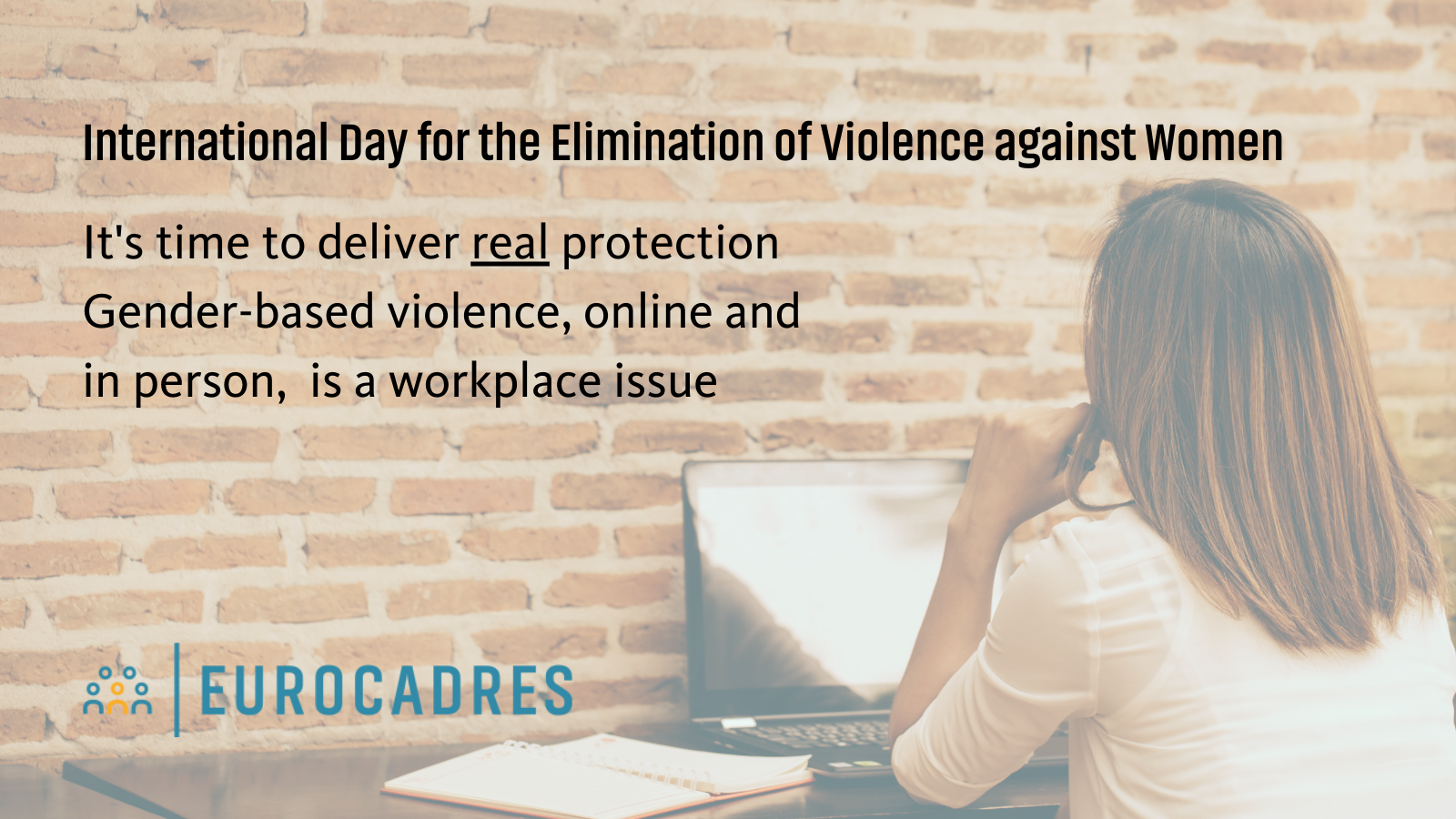
Directives, not days, to combat gender-based violence
Day for the Elimination of Violence against Women.

November 25th is the International Day for the Elimination of Violence against Women, but action in Europe has started to take place outside of a 24-hour period of awareness raising. As we have previously highlighted, days dedicated to certain issues bring prominence to key issues, but rarely lead to tangible change.
A third of women who have faced sexual harassment have experiencing it at work, while in 2019 39% of women stated they had experienced harassment in the past five years. According to the European Institute of Gender Equality, 28% have experiencing this in the past 12 months (2018 – 2019).
In March of this year, the European Commission published their draft directive on combating violence against women and domestic violence, which introduces a number of welcome proposals in regards to sentencing and cracking down on violence online. Many of the measures are necessary given the failure of Member States to ratify the Istanbul Convention, which is the most comprehensive international human rights treaty on preventing and combatting violence against women and domestic violence. While all Member States have signed the Convention, challenges related to its ratification persist in Bulgaria, Czechia, Latvia, Lithuania, Hungary and Slovakia.
Despite this, the link between gender-based violence and the workplace has been completely omitted, something that Eurocadres is seeking to change in discussions with the Parliament’s rapporteurs for the file. Having taken part in an extensive stakeholder consultation, our main amendments seek to:
- Recognise the link between domestic violence and work - Domestic violence must be considered a workplace issue when it directly impacts on the victim’s work participation, work ability and safety. This is obviously important when teleworking, in particular for managers, given the movement of work organisation from the employers’ premises to an alternative location.
- Provide sufficient preventative measures – Including an obligation for employers to evaluate the threat of workplace violence and harassment as part of health and safety measures and provide appropriate security systems and equipment where necessary to ensure workplace safety. Currently the draft fails to clarify what is expected of employers in countering gender-based violence.
- Provide managerial and supervisory staff with adequate training – Not to be confused with the obligation of employers, this category of workers should be afforded training, during working hours, relating to detection and prevention of workplace violence and harassment.
- Develop effective workplace reporting systems - with a clearly defined role for workers’ representatives and labour inspectorates, ensuring that the directive’s wording leaves the onus solely on employers, not employees from different categories.
- Define a clear role for trade unions and workers’ representatives in the development and implementation of measures to combat gender-based violence.
The fight to combat gender-based violence will be a long road, with various issues such as discrimination against victims of cyber violence in the labour market yet to be sufficiently addressed in the directive text.
On the International Day for the Elimination of Violence against Women, we call on trade unions to continue the fight against gender-based violence, implore Member States to ratify the Istanbul convention and commit to delivering a directive that truly protects women throughout Europe.
